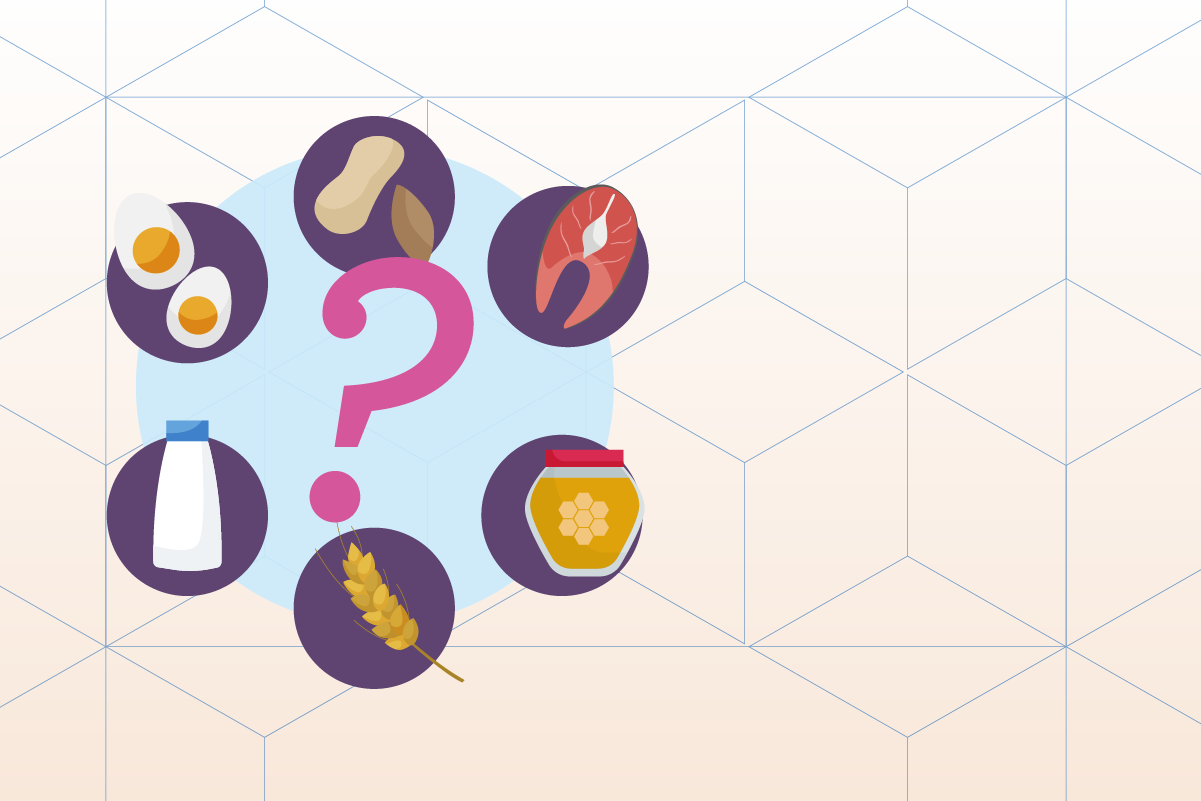Did you know 8 common allergens account for 90% of all allergic reactions in kids?
Peanut allergies are well-known, of course, but food allergies in general affect more kids than you might think. One in 13 children has a food allergy, and 30% of kids who have food allergies are allergic to more than one food.
What are the most common food allergens for kids?
The 8 most common are:
- Eggs
- Milk
- Fish
- Shellfish
- Soy
- Peanuts
- Tree nuts (walnuts, cashews, etc.)
- Wheat
What happens during an allergic food reaction?
When a child is allergic to a food, their body reacts the same way it would if they ingested something harmful. Their immune system creates antibodies to fight the “harmful” food, releasing chemicals that can affect their skin, breathing, heart and digestion.
What are the symptoms of a food allergy?
Symptoms can include:
- Trouble breathing
- Coughing, hoarseness or tightness in the throat
- Stomach pain, vomiting or diarrhea
- Itchy, watery or swollen eyes
- Hives, red spots or swelling
- Becoming lightheaded or passing out
What’s the difference in a food allergy and food intolerance?
A food intolerance is a sensitivity to a certain food that can cause burping, indigestion, gas, incontinence, headaches or nervousness. However intolerance doesn’t involve the immune system, so most are unpleasant but not dangerous. Food allergies, on the other hand, can cause serious or even fatal reactions if not treated immediately.
Can kids outgrow food allergies?
Yes. About 80% of kids will outgrow their allergies to milk, wheat and soy, and 65% of kids will outgrow their egg allergies by the time they turn 5.
How do you diagnose a food allergy?
Your pediatrician may recommend your child see an allergy, asthma & immunology specialist, who can test for and diagnose food allergies using skin or blood tests. The specialist may also use food challenges, during which a child ingests a certain food in a safe, monitored environment.
To help your doctor, track your child’s symptoms including:
- How often the reaction happens
- How long it takes between eating the food and the reaction
- If anyone in the family has allergies of any kind
How do you treat food allergies?
If your child is experiencing a severe allergic reaction, call 911. If you think your child may be suffering from food allergies on an ongoing basis, the most common course of treatment is to avoid the food altogether. Your doctor may also recommend antihistamines to manage symptoms or may prescribe an epinephrine auto-injector, which older children can be taught to use on their own.
For more information on food allergies, visit the Food Allergy Research and Education network (FARE).
Get more information about specific health terms, topics and conditions to better manage your health on bcbst.com. BlueCross BlueShield of Tennessee members can access wellness-related discounts on fitness products, gym memberships, healthy eating and more through Blue365®. BCBST members can also find tools and resources to help improve health and well-being by logging into BlueAccess and going to the Managing Your Health tab.






WellTuned provides inspiration and practical advice for healthy living.
WellTuned does not offer medical advice. Any personal health questions should be addressed to your doctor.